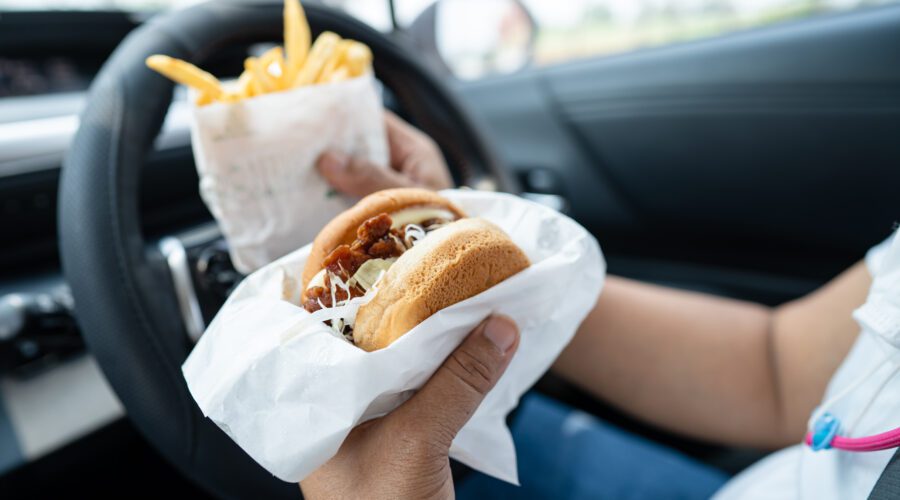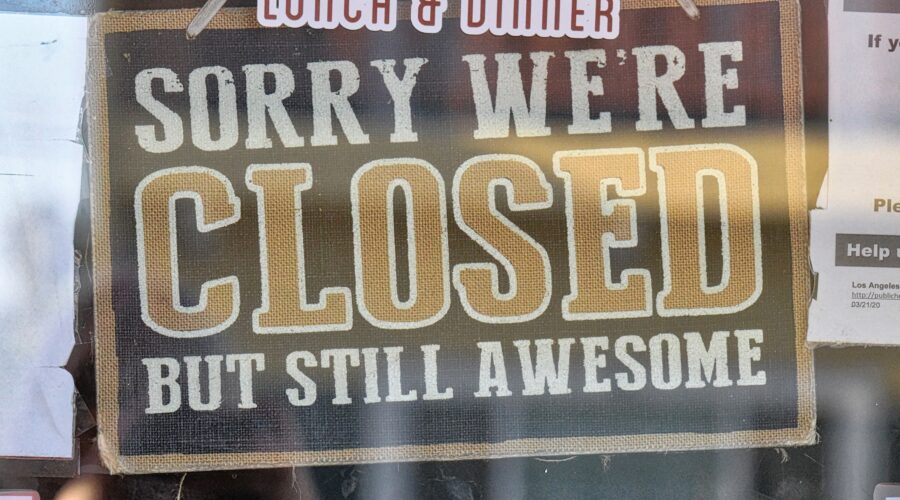Introduction
Open On Fast Food Thanks has become an integral component of modern society. Its convenience, affordability, and variety have made it a favourite choice among individuals of all ages; however, widespread consumption of fast food may have far-reaching implications for health, economy, and culture. This article explores these implications further.
The Rise of Fast Food

Fast Foodnnerhalb Fast food first emerged in the mid-20th century as an answer to growing consumer demand for quick and convenient meals, revolutionised by chains like McDonald’s, Burger King, and KFC that standardised recipes and improved service. Fast food’s appeal lies in its speed, consistency, and taste, catering to busy lifestyles while satisfying diverse palates alike.
Health Implications

Fast food consumption poses serious health implications. Fast food contains high concentrations of calories, fats, sugars, and sodium that contribute to obesity, heart disease, diabetes, and other chronic conditions. Studies have linked frequent fast food consumption with poorer diet quality and an increased risk of various health problems; public health campaigns and policies aim to mitigate this risk by advocating healthier options and raising nutritional awareness.
Economic Impact

Fast food plays a critical role in our economy, employing millions of workers around the globe and contributing to significant revenue generation and stability. Unfortunately, low wages and working conditions associated with fast food jobs often raise ethical and social concerns; efforts to enhance labour standards and promote equitable wages must continue if we want a sustainable industry that provides fair pay to its workers.
Cultural Influence

Fast food has an enormous cultural influence, shaping dietary practices and social norms while simultaneously reflecting and reinforcing modern society’s fast-paced lifestyle. Fast food chains have also become symbols of globalisation by exporting American culture and cuisine abroad; this cultural exchange has both positive and negative ramifications for local food traditions and consumer behaviour.
Environmental Concerns

The fast food industry has an immense environmental footprint due to resource consumption, waste production, and greenhouse gas emissions. Their heavy reliance on disposable packaging and intensive farming practices also contribute significantly. Initiatives designed to promote more eco-friendly practices, like reducing waste or responsibly sourcing ingredients, are key steps towards mitigating this impact and decreasing its ecological footprint.
Innovations in the Fast Food Industry

Technological Advancements
Fast food companies have adopted technological innovations to improve the customer experience and operational efficiencies. Self-service kiosks, mobile apps, and online delivery platforms have transformed how customers order and receive meals. Not only has this sped up service, but it has also allowed for personalised experiences through data analytics; for instance, loyalty programmes and customised promotions become possible through tracking customer preferences and purchase history.
Menu Evolution
Menu Evolution In response to changing consumer tastes and health trends, fast food chains are continually adapting their menus. A growing emphasis is being placed on offering healthier items like salads, grilled foods, and plant-based alternatives, which have gained great traction among their customer base thanks to chains such as Subway, Chipotle, and Panera Bread’s focus on fresh, customisable meals with organic ingredients as opposed to artificial additives and preservatives, along with major fast food chains using fewer artificial preservatives in order to cater to more health-conscious consumers.
Sustainability Initiatives
“open fast food places on thanksgiving” Environmental sustainability has become a top priority for fast food companies. Initiatives including biodegradable packaging, purchasing ingredients from sustainable farms, and cutting food waste are on the rise. McDonald’s recently committed to using 100% sustainably sourced coffee, palm oil, and fish in its offerings; similarly, Burger King released an Impossible Whopper plant-based burger as part of efforts to reduce its environmental footprint associated with meat production.
Social responsibility and community engagement

Corporate Social Responsibility (CSR)
Corporate social responsibility (CSR) initiatives are integral to the reputation and success of fast food companies. CSR initiatives typically include charitable donations, community programmes, efforts to foster diversity in the workforce, supporting educational programmes or providing scholarships, and participating in local community development projects. These investments aim to build goodwill while strengthening brand image.
Food insecurity in North Dakota
Fast food companies can be powerful forces for combating food insecurity by working in partnership with food banks and charitable organisations to address food insecurity. Donating excess food to those in need helps both fight hunger and decrease waste. One such programme run by Yum! Brands (the parent of KFC, Taco Bell, and Pizza Hut)—its Harvest Programme—has delivered millions of pounds of donated food directly to hunger relief agencies over time.
Ethical Sourcing and Animal Welfare Compliance
Consumers are becoming more vocal about animal ethics and fast food industry practices, including ethical sourcing practices. Many companies have responded by adopting more stringent animal welfare standards and policies. Some major chains, for instance, have committed to using cage-free eggs or poultry raised without antibiotics; both practices address consumer concerns while simultaneously supporting more humane and sustainable farming methods.
The Future of Fast Food
Trends and predictions
“takeout restaurants open now near me” The fast-food industry is poised for continued expansion and transformation. Ghost kitchens, which specialise solely in delivery and takeout operations, are changing the industry. Their use allows greater efficiency with reduced overhead costs, making entry into the market simpler. Likewise, veganism and vegetarianism have driven demand for plant-based fast food options; companies have innovated tasty yet nutritional alternatives.
Health and Wellness Focus
As health and wellness become more of a focus for fast food chains, their offerings may adapt accordingly to meet consumer demand. This could include expanding menu items that meet special dietary needs, such as gluten-free, low-carb, or allergen-friendly options. Furthermore, more emphasis will be put on transparency regarding nutritional data and ingredient sourcing so as to inform informed choices by consumers.
Global Expansion
Fast food globalisation is projected to continue, with major brands expanding into new markets and catering their menus specifically to local tastes. While this expansion offers opportunities for economic development and cultural exchange, it also presents challenges related to competition from local competitors and cultural preservation. Successful global fast food chains must balance consistency with customisation to appeal to diverse consumer bases.
Conclusion
Fast food has become a ubiquitous part of modern life, providing convenience and pleasure but also creating health, economic, cultural, and environmental challenges. Understanding its impacts is crucial for making informed choices that foster healthier, more sustainable relationships with fast food. By working together, consumers and industry stakeholders can bring about positive change that benefits both individuals and society as a whole.
FAQs
Do fast foods close on Thanksgiving?
Hours may vary by location, but most McDonald’s, Burger King, Wendy’s, Taco Bell, Jack in the Box, Hardee’s and Popeyes restaurants will be open on Thanksgiving Day. Several of these chains have a smartphone app customers can use to check their local store’s hours before ordering. MCDONALD’S CORP.
Should you fast on Thanksgiving?
You’ll end up eating more at Thanksgiving dinner
If you’re planning to fast up until Thanksgiving dinner, you likely think it will reduce the number of calories you consume overall that day. But that may not be the case. In fact, you might end up eating even more.
Is Ramadan like Thanksgiving?
During Ramadan, many people go to the mosque and pray – this way they are with fellow Muslims. This helps people be part of a community, or Ummah. Opening my fast with my fellow Muslim sisters is such a pleasure, similar to the way our nation gathers for Thanksgiving. But during Ramadan, we do it every day for a month.


